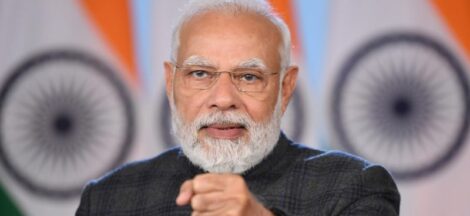By Arun Srivastava
Boris Johnson’s resignation as the foreign secretary simply points to the fact that Britain will have its general election soon, in all probability well before the final implementation of Brexit, and this would be a sort of fresh referendum on the future of the Brexit and also the procedure adopted by the British government to see it in vogue.
For the past two years Prime Minister Theresa May has been trying to put things in proper place and evolve a concrete way out, but has snot succeeded in her endeavour. During these two years things have turned more messy than moving on a well-defined path. Common Britons are concerned about her failure to put her and also her country’s view across the table before the EU leadership in a more inclusive manner. It is unfortunate and at the same time provides an insight into the political immaturity of May that she could not grasp that a situation like this could emerge in future; when her foreign secretary quit over Brexit, deepening a mood of crisis just eight months before the country is due to leave the EU.
Boris’s resignation has been coming for some time. But he actually did not force his resignation on earlier occasions. He has, nevertheless, his close aides confide, been delaying his resignation till the closing days of Brexit talks at the end of this year. In public relations terms, the two resignations are crucial as they will define the future course of May, whether she would garden her stance during the negotiation with EU or succumb to their pressure tactics, justifying the allegation of the two ministers that May wanted to turn Britain as the colony of EU.
Though Boris lacks a large number of “followers” in the ranks of Tory MPs, he will be a potentially powerful voice against the prime minister from the back benches. If the departure of David Davis was damaging for May, Boris stepping down raises the stakes even higher. Boris has been opposed to the May style of pushing Britain closer to EU. The foreign secretary, Boris Johnson, was the second minister to leave her cabinet within 24 hours, after May pushed ahead with a proposal that would keep Britain more closely tied to the EU than hard-line conservatives want.
The public face of the 2016 campaign that persuaded Britons to quit the EU, known as Brexit, Johnson is the most high-profile advocate of leaving the bloc. Obviously any move to tag Britain’s future and sovereignty with the EU would have certainly created problems. Being the prime minister May should have realized that a volatile situation like this would erupt at any stage. In fact, Boris in his resignation letter has mentioned, “That (Brexit) dream is dying, suffocated by needless self-doubt.”
It is more than two years since the British people voted to leave the European Union on an unambiguous and categorical promise that if they did so they would be taking back control of their democracy. They were told that they would be able to manage their own immigration policy, repatriate the sums of UK cash currently spent by the EU, and, above all, they would be able to pass laws independently and in the interests of the people of this country. This implied that Boris did not like the manner or endorse the process May was pursuing. If this has been the case then Boris instead of waiting so long should have left the cabinet long back with a protest.
For Boris, Brexit has been about opportunity and hope. It should have been a chance to do things differently, to be more nimble and dynamic, and to maximise the particular advantages of the UK as an open, outward-looking global economy.
One thing is absolutely clear that if David Davis, Britain’s chief negotiator in withdrawal talks with the EU, had not resigned a day earlier the impact of Boris quitting the cabinet would have left little impression on the minds of the people. The common Briton has come to believe that at some level the May government was unable to protect the interest of their country. In recent weeks major British employers have issued warnings over the risks of messy Brexit. Most prominently, Jaguar Land Rover said that a chaotic Brexit deal would threaten to derail more than $100 billion worth of investment plans in Britain and force the closure of some factories. Airbus and BMW also questioned whether they could continue to keep manufacturing facilities in the country under those conditions.
Forced with this both David and Boris held the opinion that it appears the country is heading for a semi-Brexit, with large parts of the economy still locked in the EU system, but with no UK control over that system. Boris in his letter wrote; “It now seems that the opening bid of our negotiations involves accepting that we are not actually going to be able to make our own laws. We were told that we had to wait for the EU to legislate on the matter.It is also clear that by surrendering control over our rulebook for goods and agrifoods we will make it much more difficult to do free trade deals. ”
The mess of Brexit is the biggest problem in the history of UK-EU relations. A closer look at the recent developments and more precisely on the resignation of Davis, a hard Brexit, who was among the members of the Prime Minister’s cabinet demanding a more complete break from the EU, revealed the intensity of the split in the cabinet, although he did not appeal to other ministers to follow him.For these two leaders May was in fact a “rule taker, not a rule maker.”
Surprisingly David and Boris preferred to put in their papers coinciding with the visit of US president Donald Trump to UK. Though he does favour a break with the EU, May would try to seek his assurances that the US would enter negotiations on a bilateral trade agreement. But Labour leader Jeremy Corbyn is not quite optimistic. He points out that it has taken two years for the cabinet to agree a position: “That illusion lasted 48 hours. There are only a few months left before these negotiations are supposed to conclude. We have a crisis in government, two secretaries of state have resigned and we are no closer to knowing what our relationship with neighbouring countries will look like.”
It is quite intriguing how anyone can have faith in the prime minister getting a good deal with 27 EU governments when she can’t even broker a deal in her own cabinet. Corbyn pointed out, “Government’s position has not been tested in negotiations with the EU. Jobs and the economy should not be relegated to a “sub-plot” beneath the story of the Tory civil war. For the good of this country and its people the government needs to get its act together, and if it can’t, make way for those who can.” Corbyn also pointed out that the resignation “at such a crucial time” showed that May “has no authority left and is incapable of delivering Brexit. With her government in chaos, if she clings on, it’s clear she’s more interested in hanging on for her own sake than serving the people of our country”. (IPA Service)
The post Theresa may a “rule taker, not a rule maker” appeared first on Newspack by India Press Agency.


